The theme for this year's International Day of Democracy, which fell on the 15th of September 2019, was Participation. Democracy is built on inclusion, equal treatment and participation. It is a fundamental building block for representation, human rights and legitimacy. Democracy is a two-way street, built on a constant dialogue between citizens and their representatives.
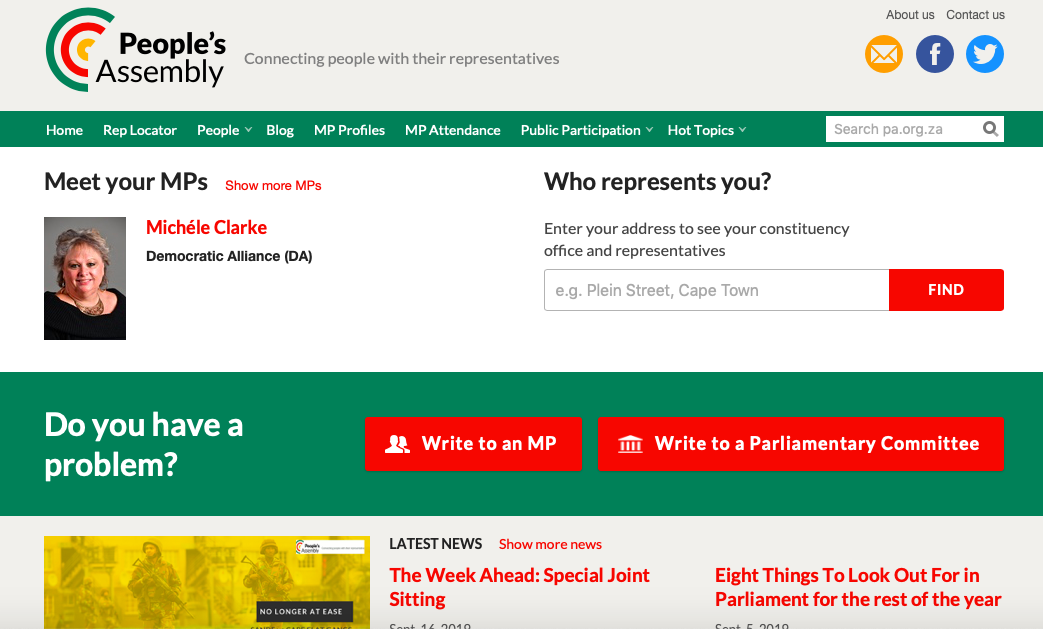
Five years ago the People’s Assembly went live. The website was launched with the aim to promote accountability and bridge the gap between ordinary people and their elected representatives. It seeks to promote a greater public voice and enhance public participation in politics by providing information about our elected representatives and the institutions they serve, and even allow us, the citizens, to provide feedback directly to them and the committees they are in. In this blog we highlight a few features of the People’s Assembly that you can use to strengthen our democracy.
The Rep Locator
Before now it has been near impossible to easily discover who your ward councillor is. The Rep Locator changed this. All you need to do is enter your address on the search tab and your respective councillor, along with their contact details, will show up.
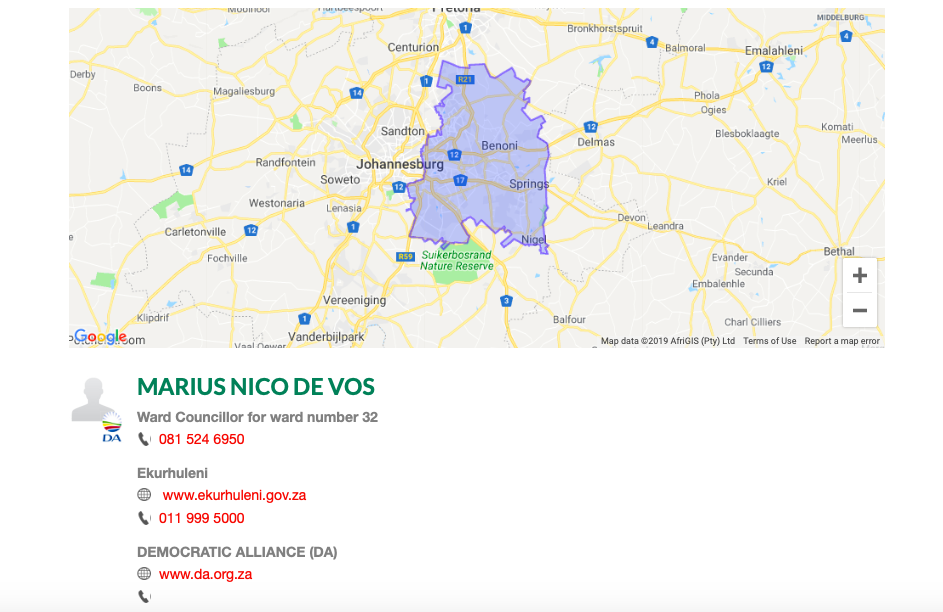
Representative Profiles
Profile pages bring together all the information that we have about an individual Member of Parliament. Their appearances (whether a mention in a PMG committee meeting report, a speech during a parliamentary sitting, or a question asked or answered) are displayed, together with that person’s declarations in the register of members’ interests, contact details, and previous positions held.
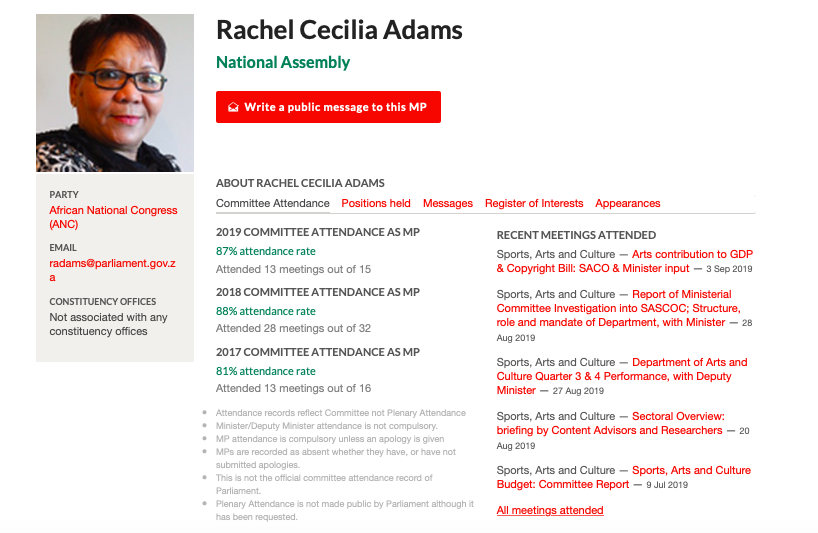
You can also search for MP’s according to their House or province.
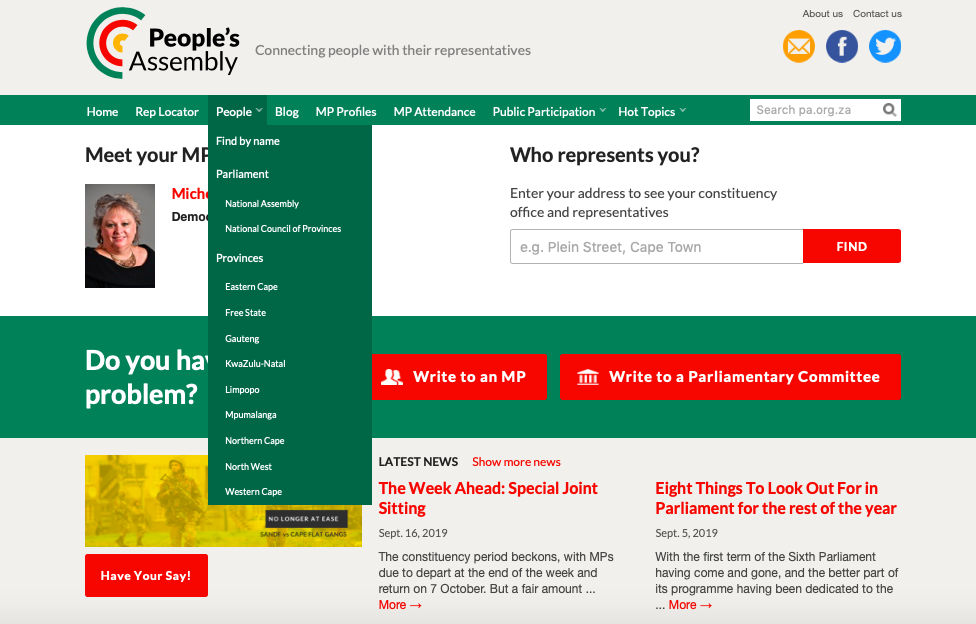
MP and Minister Attendance
Currently, Parliament does not deal with leave for MPs, it is the responsibility of the parties, but it does insist on a minimum standard for the attendance of Members at plenary sittings and committee meetings. On People’s Assembly, we show the attendance of the ruling party and the opposition.
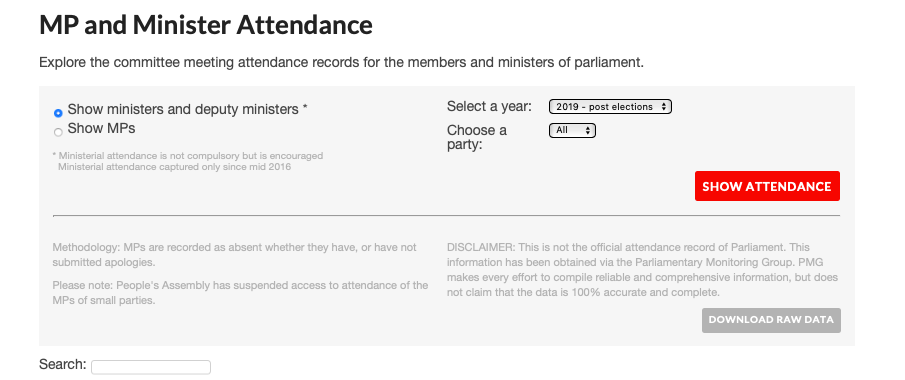
Public Participation
The strength of any democracy can be measured by how inclusive and participatory it is. The People’s Assembly public participation tool allows you to learn about current calls for comments, comment submission guidelines. Every once in a while we run polls on a specific issue that you can participate it in. The results from these polls are then sent to Parliament directly. Lastly, you can also get information on how to write a petition.
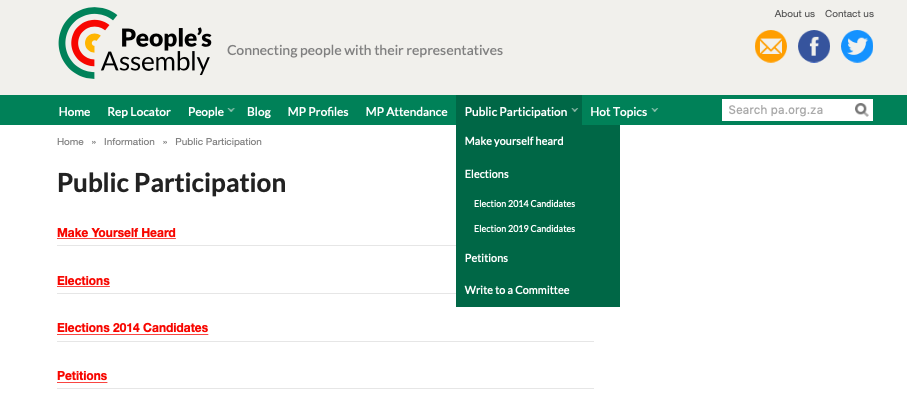
The Blog
Monitoring Parliament provides a unique and fascinating perspective of the work of our elected representatives. The People’s Assembly blog features viewpoints, information of interest, infographics and general observations that will be of interest to anyone who follows the work of Parliament.
The main purpose of our blogs is to demystify the legislature and all the information that comes from thereby making the information more accessible for people. This is especially important for us because in order for citizens to be able to participate and fully engage in a Democracy there needs to be access to information. Therefore, our blogs are our way broadening the public's knowledge and simplifying matters for them.
There is already a lot of content present on the blog - but if you are looking for a couple of posts to get you started we recommend:
Eight Things To Look Out For in Parliament for the rest of the year - it highlights some of the developments to look out for in Parliament for the remainder of the year.
6th Parliament: Turnover, Youth & Gender - this blog is accompanied by an infographic that shows the distribution of gender and age in the 6th Parliament.
A – Z of Parliamentary Parlance - this is an informative infographic to help anyone get up to speed with Parliamentary processes and some of the jargon.
The People’s Assembly website allows better scrutiny of our elected representatives. Thanks to the advent of social media, now there are many ways to do this. You can follow us on our social media pages to get the latest news and information. Facebook: @PeoplesAssemblySA; Twitter: @PeoplesAssem_SA; Instagram: @PeoplesAssemblySA.


Comments
Keep comments free of racism, sexism, homophobia and abusive language. People's Assembly reserves the right to delete and edit comments
(For newest comments first please choose 'Newest' from the 'Sort by' dropdown below.)